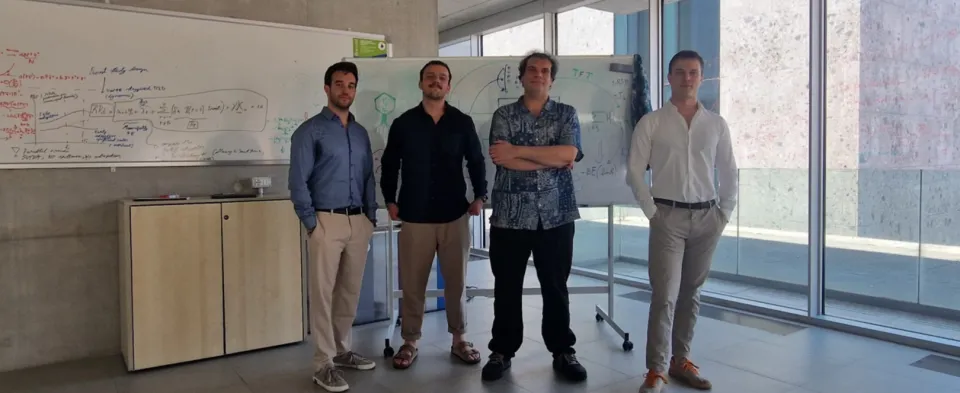
AI and Biology: The Bocconi Team Wins the Phagos × AWS Hackdays 2025
In the first edition of the Phagos × AWS Hackdays 2025, an international hackathon that brought together researchers, data scientists, and AI-for-biology enthusiasts from around the world — both in person in Paris and remotely — a team from Bocconi University stood out among the many competing teams.
Composed of Sebastiano Ariosto, Marco Benedetti, Geri Skenderi, and Davide Straziota, all PhD students and post-docs from the Department of Computing Sciences, the team secured first place thanks to an innovative solution developed in just 36 hours. They combined Deep Learning models and Large Language Models (LLMs) to analyze complex biological data through an original and highly interpretable approach.
The goal of the competition was to use artificial intelligence to analyze phage genomes — viruses that infect and destroy bacteria — and develop sustainable therapies against antibiotic-resistant infections, a growing threat especially in intensive livestock farming.
The Bocconi team chose to tackle one of the most ambitious challenges: predicting which specific types of phages are capable of infecting certain bacterial strains. Being able to accurately predict these interactions is essential for developing safe and effective therapies, avoiding the use of incompatible viruses that might be ineffective or even harmful.
“Our project laid the foundation for improving current methods,” explains Benedetti. “Instead of focusing directly on phage-bacterium pairs, we aimed to predict the interactions between specific binding proteins produced by phages and bacterial cell surfaces. Each phage can produce several proteins capable of binding to bacteria, and studying these interactions enables a more flexible and modular approach. This could facilitate the development of broad-spectrum therapies based on ‘phage cocktails’ that can target a wide range of pathogenic bacteria, even without knowing their exact nature.”
The strategy impressed the jury not only for its design, which was closely aligned with the biological nature of the problem, but also for the effort to build a model so interpretable that it could function even without complete training. “By leveraging the dataset structure,” adds Skenderi, “we were even able to estimate parameters by hand, simply based on the data distribution.”
The experience was intense and highly educational on all fronts. “From a scientific perspective, I had the chance to explore a new field, like biology, using innovative tools in a business-oriented context,” says Straziota. “On a personal level, it was unforgettable: working side by side with the team at 4 a.m., dealing with unexpected bugs, unstable cloud services, coffee, Sardinian cookies, and lots of laughter created a unique atmosphere. It left us with much more than just a victory,” concludes Ariosto.
The event was co-organized by Phagos, a French biotech startup, and Amazon Web Services, which provided access to AWS SageMaker, allowing participants to use the latest open-source models for biology on high-performance machines.